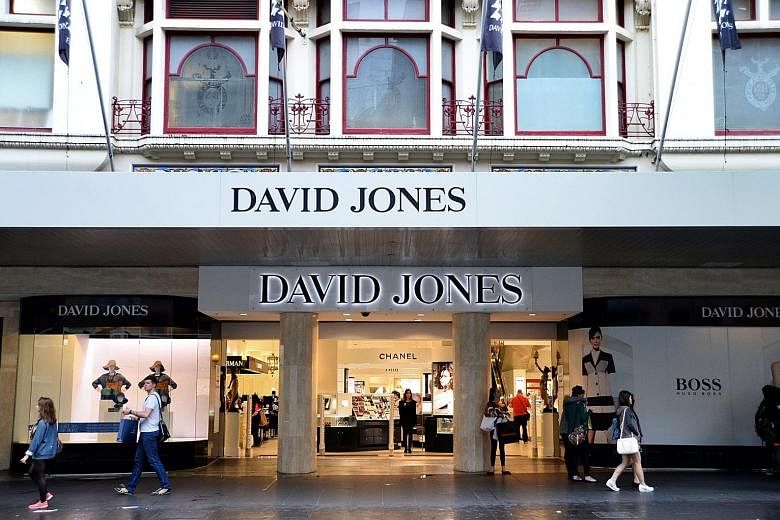In 2017, Australia's oldest department store chain, David Jones, held a gala opening for a new four-storey boutique outlet in Brisbane, promising an "innovative store experience" that included a concierge and personal shopping advisers.
But it was revealed this week that the experiment has failed. On Wednesday, David Jones announced it will close the store in June, little more than three years after it opened.
The announcement is the latest in a worrying series of moves by big-name retail chains in Australia to close stores or shut down altogether. Described as a "retail apocalypse", the recent closures have been blamed on a lagging economy and a failure by stores to adapt to the new era of online shopping.
The first retailer to announce plans for significant closures this year was Harris Scarfe, a department store chain which has gone into voluntary administration. The chain, which has annual sales of A$380 million (S$351 million), is due to shut 21 of its 66 outlets.
In recent weeks, other retailers have made similar announcements. The gaming chain EB Games is closing 19 stores, women's fashion chain Bardot is closing 58 of its 72 stores, and the educational toy chain Curious Planet is closing its 63 stores. McWilliam's Wines, one of the country's oldest wineries and the sixth largest, has gone into administration after experiencing high marketing and sales costs. The fashion chain Jeanswest also has been placed into voluntary administration, leaving its 146 stores facing an uncertain future.
An administrator for Jeanswest, Mr James Stewart from KPMG Australia, said the chain had struggled due to disappointing trade, high rents and online competition.
"I've been working in the retail restructuring area for 20 years, and it is about as difficult as I've seen it," he told The Sydney Morning Herald. "There is no doubt that globally, certain categories of retail are being challenged."
Most analysts agree with this assessment, saying stagnant wages, relatively low economic growth and record household debt levels fuelled by a property price surge have all dented consumer confidence and left people fearful of spending. Some suggested that the recent bush fires and a severe drought have also affected sentiment.
An ANZ Bank analysis this week found average economic growth in Australia had dipped from 3.3 per cent in the 1990s to 3 per cent in the 2000s and 2.6 per cent in the 2010s, but this was expected to fall further to 2-2.5 per cent in this new decade. The bank's chief economist, Mr David Plank, said the reasons for the slowdown were not entirely clear, but suggested that high household debt was causing people to reduce their spending, leading to a lack of consumer demand.
Experts said one of the other challenges facing retail had been the rise of online shopping, leaving some brick-and-mortar chains struggling to adapt.
-
SOBER FIGURES
-
169
Number of store closures announced since Jan 1.
2.2%
Average annual wage growth (long-term average is 3.2 per cent).
93.4
Consumer sentiment index rating in January 2020 (long-term average is 101.5).
120%
Household debt to GDP levels.
A$27.5b
Online annual spend in 2018, up 24 per cent from 2017.
A retail expert, Professor Gary Mortimer from Queensland University of Technology, said Australia was experiencing a significant retail market correction. He said some firms had been slow to adapt and had focused on discounting rather than sourcing better products or improving staff training.
"Retailers have lost their point of relevance," he told Nine News.
"They have focused too much on discounting. They have not responded to market changes, global fast fashion retailers entering the marketplace… We've now got global fast fashion retailers like Zara, Uniqlo and H&M here."
Retail analysts also said stores in the online era need to develop loyalty and give customers a reason to visit, such as by offering premium products.
Most believe the "apocalypse" is not likely to end soon. Many retailers depend on a busy Christmas shopping period, but the initial signs are that last month's trade was lower than expected.
Economist Jason Murphy noted that there are usually far more retail closures in February than in January, warning that the coming months were set to bring many more insolvencies.
"2020 is shaping up to be a killing season for retail - especially clothing retail," he wrote in The Daily Examiner. "The only remaining question is: Who's next?"

